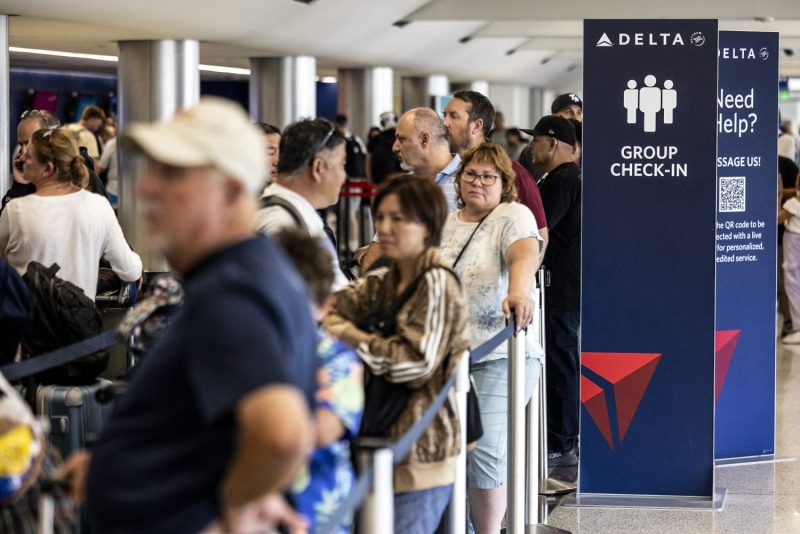Delta Air Lines Cancels Hundreds More Flights Amid Lagging Recovery from Global CrowdStrike-Microsoft Outage
Delta Air Lines, one of the world’s leading airlines, has recently faced a significant setback in its operations. The airline has been forced to cancel hundreds of flights, marking a troublesome period in its recovery from a global outage that impacted its systems.
The root cause of Delta’s recent troubles can be traced back to a worldwide disruption in services provided by CrowdStrike and Microsoft. This outage had a cascading effect on Delta’s IT infrastructure, leading to widespread disruptions in its flight schedules and operations.
As a result of the outage, Delta had to cancel hundreds of flights, causing inconvenience to numerous passengers. The cancellations have not only resulted in financial losses for the airline but have also damaged its reputation for reliability and customer service.
Delta’s slow recovery from the outage has raised concerns among passengers and industry analysts. The airline has been working tirelessly to restore its operations to normalcy, but the process has been slower than expected.
In response to the challenges posed by the outage, Delta has implemented a series of measures to mitigate the impact on its operations. The airline has been rebooking affected passengers on alternative flights, providing them with compensation, and communicating regularly with customers to keep them informed of the situation.
Despite these efforts, Delta continues to face operational challenges as it works towards full recovery. The airline is facing a backlog of flights and disruptions in its flight schedules, all of which have put a strain on its resources and staff.
The recent troubles faced by Delta serve as a stark reminder of the vulnerabilities inherent in today’s interconnected global systems. As businesses rely more heavily on digital technologies and cloud services, they become increasingly susceptible to disruptions that can have far-reaching consequences.
Looking ahead, Delta will need to reassess its IT infrastructure and contingency plans to better prepare for similar incidents in the future. The airline must prioritize resilience and agility in its operations to ensure that it can respond swiftly and effectively to any unforeseen disruptions.
In conclusion, Delta Air Lines’ recent challenges underscore the importance of robust IT systems and contingency planning in the face of global disruptions. As the airline industry continues to navigate a turbulent operating environment, companies like Delta must remain vigilant and proactive in safeguarding their operations against potential risks.
